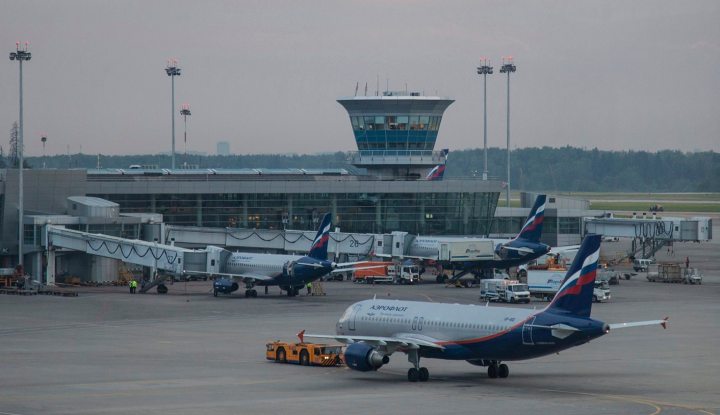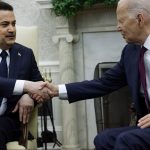World
Edward Snowden, the ultimate Terminal Man

Edward Snowden might have a couple of potential locations to languish in, in future, but for the moment he remains stuck in Terminal limbo. By J BROOKS SPECTOR.
Anyone who has travelled internationally probably knows the feeling. There must be novels and short stories about this. You are in the international transit lounge of a someplace for hours in the early morning – you are in-between somewhere and somewhere else – and in your bleary, half-waking dream state you see a similarly in-transit person across the rows of seats occupied by the exhausted sleepers and dreamers also waiting for an onward flight, and maybe you day-dream about that perfect moment – a relationship with absolutely no strings because you will never, ever see each other again. One of you is headed towards Yakutsk, the other en route to Belo Horizonte, and the paths will never meet again.
The reality of the transit lounge is, of course, a very different thing altogether. And espionage, electronic eavesdropping, whistle-blower extraordinaire Edward Snowden’s life right now is Exhibit A of this less exciting, much less pleasant truth. And at least for some indeterminate time going into the future, Snowden’s circumstances have become a kind of real-life version of the fictional life of Viktor Navorski in Steven Spielberg’s film, The Terminal.
In that film, Navorski, played by Tom Hanks, has arrived in New York’s John F Kennedy International Airport, only to learn his passport has become invalid now that a civil war has broken out in his home country of Krakozhia. With that civil war going on, the United States no longer recognises Krakozhia and as a result, Navorski can neither enter the US nor return home. With all avenues blocked, Navorski settles into a life in the terminal with just his luggage and a copy of a famous jazz photograph (the reason for his trip to the US in the first place – he is attempting to get the autograph of jazz musician Benny Golson, one of the performers in the photo, in fulfilment of Navorski’s promise to his father). Eventually Navorski builds networks of supporters from among the worker bees in the airport – and earns the enmity of the customs official, played by Stanley Tucci.
Now, if the diplomatic wrangle that seems to have Snowden caught in its sights does not get resolved, the realities of Snowden’s life in Moscow’s Sheremetyevo International Airport “transit zone” may well begin to resemble, more and more, Spielberg’s fictional morality play. Soon enough, maybe already, Snowden will become enormously bored (and fatter) from the limited, starchy, tasteless food choices available to him in a transit lounge, the lack of a decent bathroom, the plain lack of privacy, any quiet space, or a place to go so he can stretch one’s legs. Soon enough he will get very antsy from the lack of a good library, a decent bookstore, a park, a swimming pool, a clothing or hardware store where normal people might buy things from, television sets showing anything besides CNN, the BBC or Russia Today, and on and on and on.
To review, Snowden, in case there is a reader who hasn’t heard about his adventures already, was, until very recently, a contractor working for Booz Allen Hamilton, but assigned to the National Security Agency, the NSA. This ultra-secret US Government agency has, since its founding, been responsible for the interception of wireless signals by foreign governments and the evaluating of other forms of electronic traffic.
More recently, it had been tasked with the aggregating and evaluating of truly gargantuan volumes of international Internet traffic on email and the social media sites in pursuit of suspicious patterns of words (like a message that included trigger words like bomb, explosive, al-Qaeda, airports, airplanes, IED, terror, maim, build). In theory, aggregations of such words throughout volumes of traffice – the so-called metadata – could lead the NSA and the rest of the US security establishment to the links and communications of terrorist plotters and similar cabals around the world.
The troubles began when Snowden seemed to come to a realisation that all this meta-data aggregating was also, necessarily, taking a peek at American citizen communications traffic too. And that, moreover, the giant IT communications companies like Google have been complicit in allowing all this to happen. As that realisation sank in, Snowden seems to have become conscience-stricken about his own complicity in this, and he began handing over vast files of his own harvesting from the NSA’s archive to the UK newspaper, The Guardian, which promptly shared this bonanza with The Washington Post.
By the time these media started publishing articles about all this activity, based on what Snowden had handed over to them, Snowden had come to the realisation his job security with Booz Allen Hamilton (let alone his top secret, sensitive, compartmentalised, no foreign dissemination access to information security clearance) was now really over, finished, kaput. So there he was, after fleeing the US, sitting in a luxury Hong Kong hotel, pondering his fate and his future, and wondering what he should do next. Or, perhaps, he was a man with a plan, right from the get-go. Some of his recent reported utterances seem to indicate he had thought the whole thing out, rather than just make it up as he went along.
Anyway, the US government says that once they got wind of all this – apparently only after reading about in the morning papers – they had filed the right forms with the Hong Kong government to hold Snowden in place; that they had appropriately revoked his passport and opened their sealed indictment on him and issued it internationally; and that the Hong Kong authorities should have held him in accord with international law generally and bilateral treaties specifically and extradited him back to the US, in accordance with that criminal indictment.
Now the Hong Kong authorities (or maybe it was the Chinese authorities themselves, since Hong Kong just happens to be a special zone of China now and the Chinese government has been known to make its weight felt occasionally in Hong Kong affairs) says that all those finicky “i’s” and “t’s” actually were incorrectly dotted and crossed somewhere on all those forms; that there was something technically wrong with the indictment itself; that they didn’t know at right strategic moment that Snowden’s passport was now revoked and that he shouldn’t be allowed to travel further; and that Snowden’s zodiac sign was particularly unlucky that week and the Moon was in the wrong phase for precipitate action (well, okay, not those last two, but readers get the idea). This seems to have been bureaucratese for “our hands are tied; we can do nothing.”
Of course, the Chinese have had something of a low-level, sullen snit-fight with the US going on, ever since they were accused of cyber-spying on US defence information, some months earlier. Those Snowden revelations came just as Barack Obama was due to meet with Xi Jinping, the new Chinese president, in California and Snowden’s song became a most excellent counterbalance to the earlier American charges. That little presidential tete-a-tete must have been very interesting, the moment the agenda turned towards information sharing.
Now the rumours are that Snowden had planned to go to Cuba via Moscow and then on to Ecuador where he was understood he would be embraced with open arms; that he would get Ecuadorian travel documents; and that he would be yet another hero given love and affection by Ecuador. Julian Assange, after all, the founder of Wikileaks and yet another bête noir of the US for that particular bit of business, is still holed up in Ecuador’s embassy in London. Moreover, they, the Ecuadorian authorities had, so far at least, said they have no plans to turn him over to the US or the UK (or Sweden, for that matter, over that matter of sexual assault charges because that could, in turn, lead to repatriation to the US to stand trial there for all that data dumping he did).
But so far, at least, Edward Snowden is swimming in place in the Moscow airport transit area. His further flight to Havana or Quito is stalled, as the Russians have not seen fit to let him keep going further. Interestingly, both Cuba and Ecuador (and China, too, for that matter) have extradition treaties in force with the US – and there is not one with Russia, even though both countries have repeatedly extradited individuals to the other nation upon request.
As the New York Times reported, “President Vladimir V. Putin of Russia on Tuesday appeared to rule out sending Edward J. Snowden back to the United States to face espionage charges, leaving him in limbo even as Moscow and Washington seemed to be making an effort to prevent a cold-war-style standoff from escalating. In his first public comments on the case, Mr. Putin said that Mr. Snowden — the former National Security Agency contractor who leaked documents about American surveillance programs — had committed no crime on Russian soil and was ‘a free man’ who could choose his own destination. ‘We can only extradite some foreign nationals to the countries with which we have the relevant international agreements on extradition,’ he added. ‘With the United States, we have no such agreement.’ ”
But now put yourself in the place of the Russian government. There has been a slow chilling of US-Russian relations over a whole range of issues these past few years – differences on Syria, on Iraq, on North Korea, on nuclear proliferation issues more generally, complaints about US support for human rights NGOs in Russia, oh, lots of things. If the fates suddenly handed you a man with some serious black arts knowledge, with (reportedly) much more in the way of revelations about American data intelligence, intelligence management, and information surveillance, who couldn’t return to the US save to stand trial and become a permanent guest of the US Government, what would you do as a senior Russian official? Would you send him along to some place closer to the US where he might just get an involuntary ride home, or would you keep him on ice in the transit lounge of an airport that is only a short distance from FSB headquarters on Lubyanka Square in downtown Moscow? That would be the rough equivalent of a pocketknife poised right over a major artery. Lots of possibilities there.
Or as the Washington Post reported the other day, “We don’t know where in Moscow’s Sheremetyevo International Airport ‘transit zone’ Edward Snowden is hiding out or what exactly his plans are. But if he intends to stay in the airport for a while – a former official with Russia’s immigration service suggested that he could stick around ‘indefinitely’ – he’ll join a short but prominent list of politicised activists and refugees who have found themselves stranded in legal limbo between the arrival gate and customs.”
That will mean all the time in the world to speak to him about what he knows, dangle the chance that he can keep on moving if he would just speak a bit more openly about what he knows, and keep him around, available as a perfect exhibit whenever circumstances require demonstrating bad behaviour on the part of the Americans to counterbalance something else. Some American senators and congressmen have taken to charging that this whole mess was a nefarious plot by those stereotypically insidious Chinese. But it seems to this writer that this is rather more in the manner of a gift that simply fell into the laps of the Russians – and that they are now slowly contemplating how best to put it to best use.
Consider this bit of history. Over fifty years ago, a CIA contractor, Gary Powers, flying one of those U-2 intelligence gathering high altitude spy planes over the then-Soviet Union in the days before satellite intelligence gathering, was shot down by an anti-aircraft missile, right at the edge of its operating limits.
The problem was that the Russians knew the plane had been shot down well before the US did, and they caught the Eisenhower administration claiming publicly that it was an off-course weather monitoring aircraft that had had engine trouble and gone off its flight path. The Russians promptly showed bits of the plane wreckage – including the cameras and a very live Gary Powers – to the world’s press and used the charges of spying and Powers’ trial to scuttle the upcoming Eisenhower-Khrushchev summit, thereby tightening the tension between the two nation in the icy standoff of the Cold War.
Snowden may be a new pawn in an old-style game, but it may be unlikely he is going to be able to go off to a quiet sinecure in Ecuador any time soon – free to provide more information to the world’s press, that is a close look behind the curtain that usually obscures intelligence gathering and information harvesting (at least until the Russians understand a bit better what he knows about the process – and them). In the meantime, Snowden is going to have some interesting conversations with quiet, nondescript men in overcoats who take a kindly interest in a lonely young man living rough in an airport transit lounge, gazing longingly at the departure board – wondering when his turn to board will finally come. DM
Read more:
- Here’s what happens to asylum-seekers who stay in airport limbo indefinitely at the Washington Post;
- With Snowden in Middle, U.S. and Russia Joust, and Cool Off in the New York Times;
- Edward Snowden’s Ecuador asylum bid ‘may take weeks’ at the BBC;
- The Terminal at Wikipedia;
- FILM REVIEW: The Terminal: Paradise Lost and Found at the New York Times.
Photo: Aeroflot planes are seen at Moscow’s Sheremetyevo airport June 26, 2013. Edward Snowden, until recently a contractor with the U.S. National Security Agency, had been expected to fly to Havana from Moscow on June 24, 2013 and eventually go on to Ecuador, but he still remained at the airport. REUTERS/Stringer

















 Become an Insider
Become an Insider